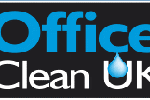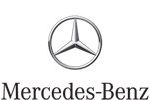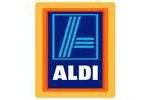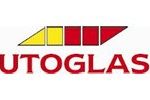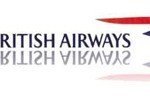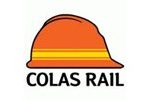Let’s face it, when it comes to industrial cleaning, it’s not exactly the stuff of dreams. Yet, proper training in handling these behemoths of cleanliness is crucial. So, roll up your sleeves and let’s dive into the nitty-gritty of Industrial Cleaning Machine Handling. Trust me, it’s more exciting than it sounds. Well, almost.
Getting Started

What are Industrial Cleaning Machines?
Industrial cleaning machines are the heavyweights of the cleaning world. Think of them as the sumo wrestlers of janitorial equipment, designed to tackle the messes that mere mortals (and mops) cannot. From floor scrubbers to sweepers, vacuum cleaners to pressure washers, these machines are built to handle the toughest cleaning jobs.
Why Bother with Training?
Skipping training on these machines is like trying to pilot a plane after only playing a flight simulator. You might get off the ground, but things are likely to end badly. Proper training ensures you use these machines safely and efficiently, avoiding costly mistakes and, let’s be honest, potential embarrassment.
Check out our FREE Training Academy
Types of Industrial Cleaning Machines
Floor Scrubbers

Meet the mop’s beefy cousin. Floor scrubbers are designed to clean large hard surfaces like concrete or tiled floors. They come in walk-behind and ride-on models. Think of them as the Segways of the cleaning world, but with a much more respectable job.
See Our Range of Floor Scrubbers
Sweepers
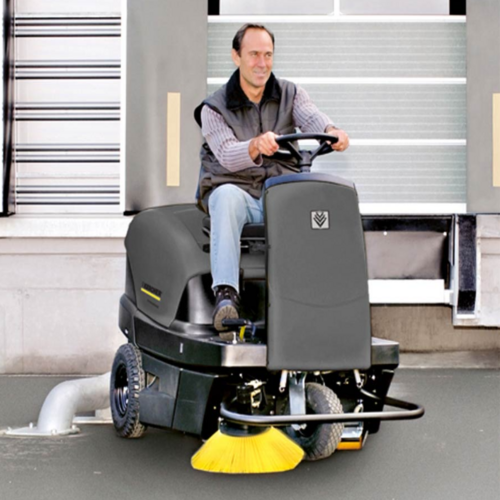
These are the vacuum cleaners on steroids, collecting dust, debris, and anything else that’s too stubborn to just blow away. Available in both walk-behind and ride-on varieties, they’re essential for keeping those vast industrial floors clean.
Industrial Vacuum Cleaners
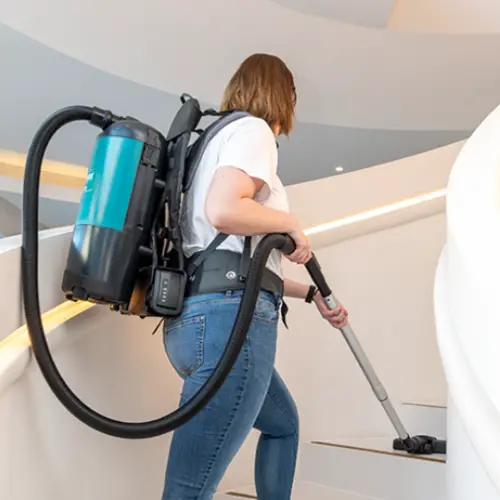
These aren’t your grandma’s vacuums. Industrial vacuum cleaners can handle vast amounts of dust and debris, making them indispensable in places like construction sites and manufacturing plants.
See Our Range of Industrial Vacuum Cleaners
Pressure Washers
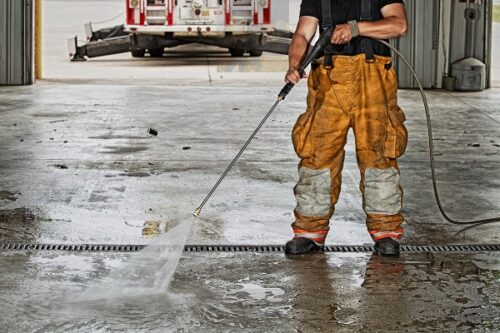
Pressure washers are like the power-lifters of cleaning equipment, using high-pressure water jets to obliterate grime and dirt. They’re perfect for cleaning outdoor areas and heavily soiled surfaces.
See Our Range of Pressure Washers
Essential Training Components
Safety First
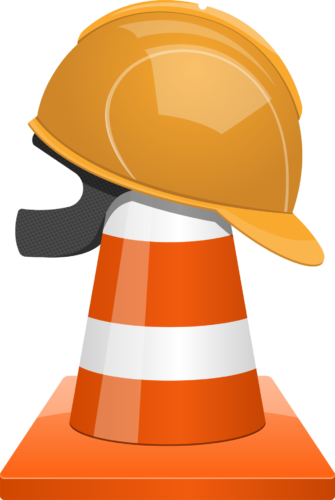
Personal Protective Equipment (PPE)
Before you go all Captain Clean, make sure you’re decked out in the appropriate PPE. This includes gloves, safety glasses, ear protection, and proper footwear. Looking like a cross between a cleaner and a knight in shining armour is just a bonus.
Machine Safety Features
Familiarise yourself with the safety features of your machine. Know where the emergency stop button is, and understand all those safety guards and automatic shut-off features. They’re not just there for decoration.
Check out our FREE Training Academy
Machine Operation
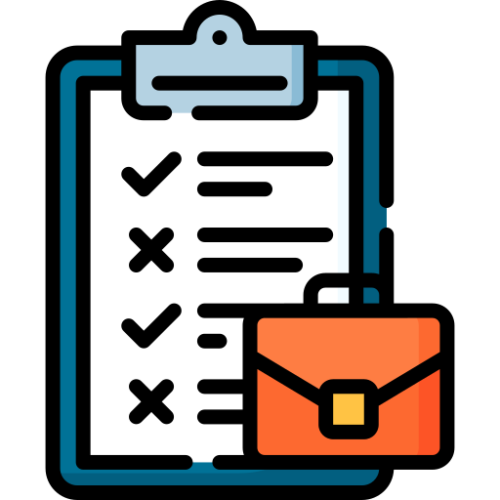
Reading the Manual
Yes, I know, no one likes reading manuals. But trust me, winging it with these machines is a bad idea. Read the manual. It’s the key to understanding your machine’s quirks and safety protocols.
Pre-Operational Checks
Before you let loose, give your machine a once-over. Check fluid levels, inspect for damage, and make sure all safety features are in place. It’s like a pre-flight check, minus the altitude.
Check out our FREE Training Academy
Practical Training
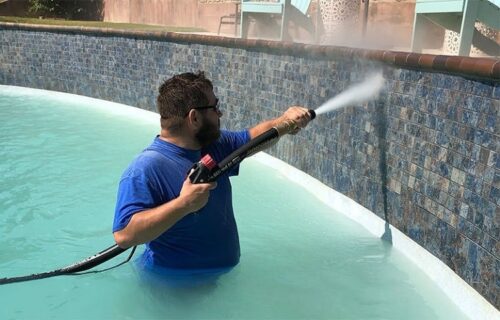
Hands-On Practice
There’s no substitute for hands-on practice. Under the watchful eye of an experienced trainer, get to know your machine. Feel the power, but remember, with great power comes great responsibility. Or at least the potential for a great mess if you’re not careful.
Simulated Scenarios
Practice makes perfect, and simulated scenarios help prepare you for real-life situations. Think of it as a dress rehearsal for the big clean.
Check out our FREE Training Academy
Maintenance and Troubleshooting
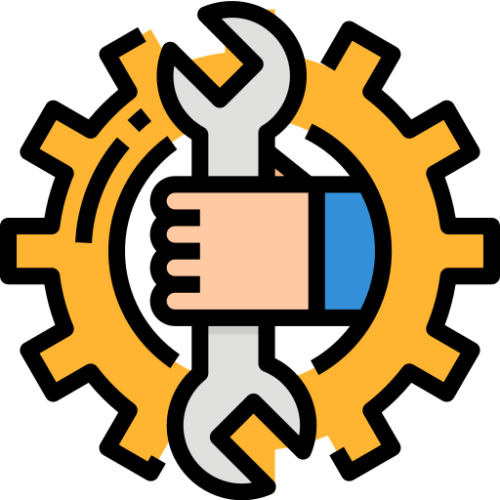
Routine Maintenance
Regular maintenance keeps your machines in tip-top shape. Clean filters, check fluid levels, and inspect for wear and tear. Skipping maintenance is like ignoring your car’s oil change – it never ends well.
Troubleshooting Common Issues
Know how to troubleshoot common issues. Blockages, leaks, power problems – these things happen. Being prepared can save you a lot of headaches and a few stern looks from the boss.
Check out our FREE Training Academy
Advanced Training Topics

Eco-Friendly Cleaning Practices
Save the planet one sweep at a time. Learn about eco-friendly cleaning agents, reducing water usage, and proper waste disposal. It’s not just good for the environment; it’s good for business.
Optimising Efficiency
Efficiency is key in industrial cleaning. Plan your routes, use the right machine for each task, and manage your time wisely. It’s like playing a real-life game of Tetris, but with dirt.
Handling Hazardous Materials
Sometimes, you’ll need to clean areas with hazardous materials. Training on how to handle and dispose of these safely is crucial. No one wants to be that guy who caused a chemical spill.
Check out our FREE Training Academy
Common Mistakes to Avoid

Overloading the Machine
Don’t push your machine beyond its limits. Overloading can cause damage and reduce efficiency. It’s like stuffing too many clothes in a washing machine – a bad idea all around.
Ignoring Safety Protocols
Safety protocols exist for a reason. Ignoring them can lead to accidents, injuries, and awkward conversations with your supervisor.
Skipping Maintenance
Skipping maintenance is a rookie mistake. Regular upkeep keeps your machines running smoothly and avoids costly breakdowns.
The Role of Supervision

Ongoing Training and Support
Good supervision ensures operators follow training guidelines. Ongoing training and support address issues as they arise and keep skills sharp.
Conducting Regular Audits
Regular audits help identify training gaps and ensure procedures are followed. Spot checks and performance reviews keep everyone on their toes.
Check out our FREE Training Academy
Cleaning Equipment Services Ltd hire and sell a wide range of new and second-hand top-of-the-line cleaning equipment from industrial vacuums and floor scrubbers to pressure washers and floor polishers etc. Additionally, we also hire powerful steam cleaners at Pure Steam Cleaners. We’re always available to answer any questions and provide guidance on the best cleaning methods and procedures. We’re also very patient and accommodating with explaining the operation and maintenance of the equipment.




